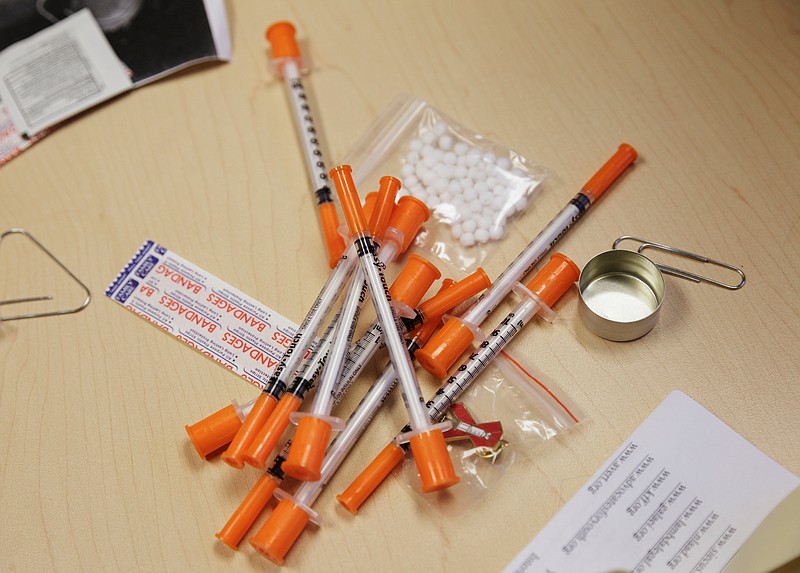Chattanooga's syringe exchange program started just over a year ago with the goal to prevent infectious diseases and encourage safe needle disposal, but program manager Ashley Ewald said it's become much more.
"It's a safe haven for people who inject drugs. It's a place for them to come and not feel judged. It's a place for them to feel heard and understood," said Ewald, harm reduction manager at Cempa Community Care, a local nonprofit organization focused on HIV and infectious disease prevention.
Hamilton is one of four counties in Tennessee with a syringe exchange program, launched last spring after the practice became legal in the state.
STEP TN, which stands for Syringe Trade and Education Program of Tennessee, is operated locally by Cempa and works alongside East Tennessee State University to run a second site in Washington County. The state's two other syringe exchange programs are in Knoxville and Nashville.
The free, anonymous program allows participants to exchange used needles for sterile ones. Research supports that giving people who inject drugs clean needles curbs the spread of blood-borne diseases, such as HIV and hepatitis C, because those who are desperate to get high often reuse needles if that's their only option.
It also provides an opportunity for clients to get tested and linked to treatment, and people who use heroin or other opiates can receive the overdose antidote naloxone - provided by the Hamilton County Coalition - for free, as well.
Between March 2018 and 2019, 909 people in Hamilton and Washington counties have participated in the program, 122,633 used syringes were safely discarded and 161,017 clean syringes were dispensed. So far this April, 91 new clients enrolled, 17,571 syringes were collected and 20,160 were distributed.
Since the program's inception, 930 naloxone kits have been handed out.
And while demand keeps going up, Ewald and Cody Wilson, who joined the program a few months ago as an expanded testing specialist, said the perception behind substance use and harm reduction is fading at a much slower rate.
"We're known as the Bible Belt, of course, and a lot of stigma goes around people who use drugs," said Wilson. "It could be anybody, so I don't think it's fair for someone to be judged."
Wilson has worked in other health care fields but said he quickly fell in love with his new job. And when people ask what he does for a living?
"I just get straight to the point with them," he said. "I have some of the best clients They're very grateful for what you do for them and respect what you're doing for them and others."
Because the concept is still new, Ewald said, they learn a lot along the way. For example, Cempa now requires new clients who don't already know their status be tested for HIV and hepatitis C before participating in the exchange, and the results have been surprising, she said.
"There are so many people out there walking around with hepatitis C who don't know it," Ewald said. "It's safe to say over half the clients we test for hepatitis C are positive, and the only reason we don't test everybody is because they've already tested positive."
Although Ewald connects everyone to treatment, getting clients to follow through can be a challenge.
"For years and years we've ostracized people who inject drugs - they've absorbed that institutionalized hatred," she said. "I can't tell you how many clients say, 'I'm going to wait to get treatment until I can get clean.' But we don't tell people who are overweight with diabetes that they should get skinny before they get treatment."
Ewald believes more funding and research to show the program is working could go a long way toward expanding needed services, but in the meantime she's working to normalize harm reduction by reminding people that at the forefront it's infectious disease prevention.
"If I don't think it's a big deal, I'm going to carry that attitude with me so that it shows and leaves an example for others," she said. "This is my job, and I love what I do."
Contact staff writer Elizabeth Fite at efite@timesfreepress.com or 423-757-6673.
